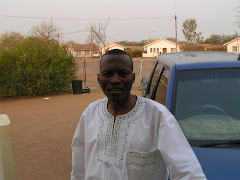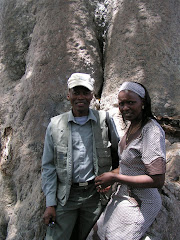In Botswana, there are various child abuse laws unfortunately there is lack of uniformity in the various statutes which relate to children. This is because each statute serves a specific purpose. Consequently, at the time of accession Botswana entered a reservation as follows:
“The Government of the Republic of Botswana enters a reservation with regard to the provisions of Article 1 of the Convention and does not consider itself bound by the same in so far as such may conflict with the Laws and Statutes of Botswana”.
2. A brief synopsis of statutes relevant to the definition of a child follows. Generally courts should always ensure that they ascertain to their satisfaction the ages of any children involved in any dispute, civil or criminal, before them in order to extend the relevant protections provided for in the statutes.
3. According to section 49 of the Interpretation Act the legal age of majority in Botswana is 21 and it is at this age that a child acquires full legal capacity to act on his/her own officially and in legal matters. There is no stipulated minimum age at which a child becomes eligible to seek independent legal advice but a child below the age of majority is deemed not to have any locus standi, capacity to contract and to sue or be sued without parental consent or assistance.
4. The Constitutional Amendment Act of 1997 reduced the voting age from 21 years to 18.
5. The Children’s Act (Cap 28:04) defines a child as any person below the age of 14 years (s2). This Act makes provision for the appointment of Commissioners of Child Welfare to deal with neglect, ill-treatment and abuse of children; for the custody of children in need of care; for the establishment of children’s and juvenile courts and institutions for the reception of children; and for other matters incidental to the above.
6. For purposes of the Adoption Act (Cap 28:01) a child is a person under the age of 19 years (s2). This Act makes provision for the adoption of children in Botswana and for related matters.
7. The Affiliation Proceedings Amendment Act of 1999 defines a child as a person below the age of 18 years. This Act provides for the making of orders for the maintenance of such children and other associated matters.
8. In terms of the Deserted Wives and Children’s Protection Act (Cap 28:03), which regulates the making of orders for the maintenance of wives and children who have been deserted and are without adequate means of support, a child is a person under the age of 16 years or who is under 21 years and is not earning his own living (s2). This means that, for purposes of this Act, any person who is between 16-21 years and is earning his/her own living is not a child.
9. Civil marriage is regulated by the Marriage Act (Cap 29:01), according to which a person below the age of 21 years requires the consent of his/her parents or guardian (only the father’s consent is required if the person’s parents are married) unless they are a minor widow or widower. No male below the age of 16 years or female below the age of 14 years may marry (s17).
At Common Law, a minor boy attains majority upon marriage while a minor girl who marries falls under the guardianship of her husband. This differential treatment of females and males is contrary to the non-discrimination principle in the Convention. An amendment to the Marriage Act to provide for a uniform minimum age for civil marriage 18 years is currently being considered by Parliament.
10. Persons below the age of eight years are not criminally responsible for any act or omission in terms of section 13(1) of the Penal Code. Between the ages of eight and 14 it is possible that they can be demonstrated to be criminally responsible if it is proved by the prosecution that the child had the capacity to know that he/she ought not perform the act or make the omission at the time. However a male child under the age of twelve years is presumed to be incapable of having carnal knowledge (s13(3)) and therefore cannot technically be responsible for rape.
11. Consent to sexual intercourse can only be given by a girl of 16 years and above. Furthermore any person who unlawfully has carnal knowledge of any girl below the age of 16 years is guilty of defilement (s147(3) Penal Code). It is a defence to this charge that the person had reasonable cause to believe that the person was above 16 or was his wife. There is also a crime of indecently assaulting a boy under 14 (s166 Penal Code).
12. The Evidence in Civil Proceedings Act (Cap 10:02) provides that no child shall be excluded from being sworn as a witness or be deemed incompetent to give evidence in respect of age, provided that such child understands the nature and recognises the religious obligation of an oath (s5). The Criminal Procedure and Evidence Act (Cap 08:02) states that every person who is not excluded, by the same Act, from giving evidence shall be deemed to be competent and compellable to give evidence in criminal proceedings. Children are not excluded by the Act as witnesses, but a child who does not understand the implications of an oath may be admitted to give evidence without being sworn in or without affirmation (s221).
13. The Mental Disorders Act (Cap 63:02) which regulates the law relating to the treatment and placement in care of those suffering from mental disorders defines a child as a person below the age of 16.14. For purposes of the Education Act (Cap 58:01), a child is a person under the age of “maturity”. Maturity has not been defined in Botswana law so possibly maturity may be interpreted to mean the age of majority of 21 years.
15. There is no conscription in Botswana. The Botswana Defence Force Act (Cap 21:05) provides that a person under the apparent age of 18 years shall not be enlisted in the armed force -section 17(2).
16. The sale of liquor to persons below the age of 18 years is proscribed by section 36 of the Trade and Liquor Act (Cap 43:02). No trader may sell liquor to any person below the apparent age of 18 years. The use of “apparent” however imports some ambiguity.
17. For purposes of the Employment Act (Cap 47:01), which deals with regulation of the employment of children, a distinction is made between a child and young person. A “child” is defined as a person under the age of 15 years and as such the employment of children is prohibited. A “young person” is a person between 15 and 18 years.
18. In terms of the Trade Union and Employers Organisations Act (Cap 48:01) no individual under the age of 15 years shall be a member of a registered trade union. Moreover the constitution of a registered trade union or employees association may exclude young persons from membership of that union or organisation.
19. The Public Health Act (Cap 63:01) defines a child as a person who is under or appears to be under the age of 16 years.
20. In Customary Law, there are no specific rules that determine the cessation of childhood especially with regard to age limits. However, under the traditional practices of bojale and bogwera (initiation rites for females and males respectively) completion of these rites bestows the status of adulthood on the individual. There has been a marked decline in the practice of these rites so it is not clear how childhood and adulthood are determined under Customary Law.
In Customary law different rules may be applied in different geographical areas in relation to a broad range of matters affecting children such as marriage, adoption, affiliation, inheritance and maintenance where there are differing customs. The provisions of the statutes detailed above will not generally apply although they may be respected in practice. Customary Courts are bound by the applicable provisions of the Children’s Act in relation to acting as Commissioners for Child Welfare but it is not clear in practice whether they are always implementing it fully.
Subscribe to:
Post Comments (Atom)











No comments:
Post a Comment